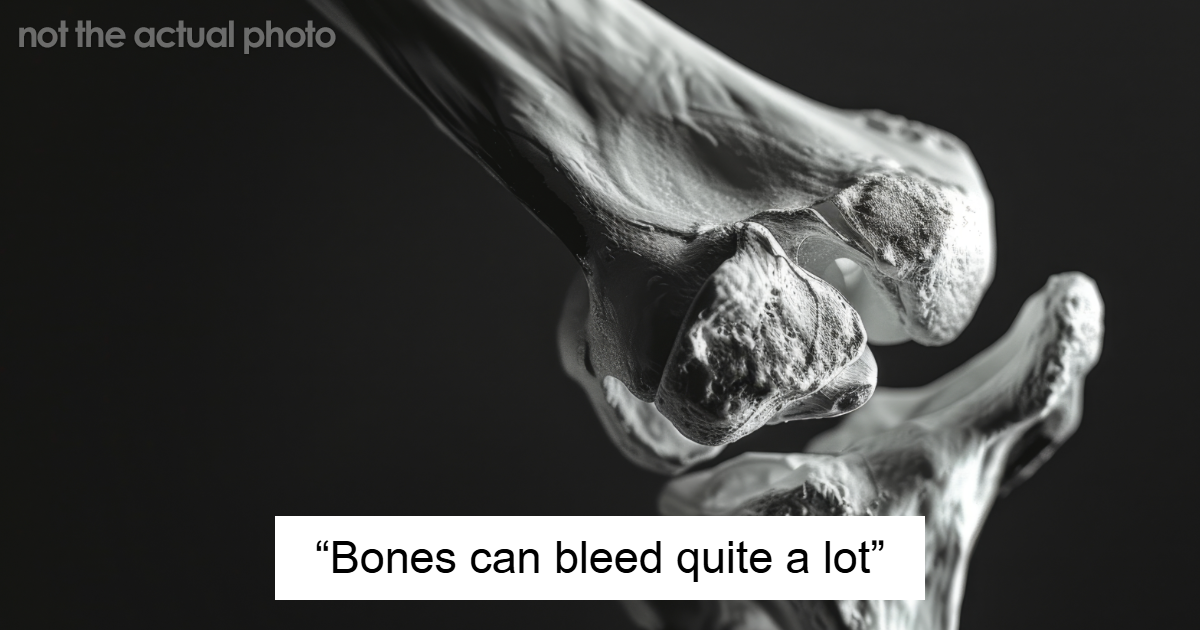
Medical Staff Reveal Their Favourite Quirky Facts About The Human Body (25 Answers)
There’s so much information about the human body that the average person doesn’t even know that they don’t know about. But it sure is fascinating to discover all these little hidden aspects of ourselves that continue their functions despite our lack of awareness.
The following intriguing responses were shared under an online question asking, “Medical people of Reddit, what is your favourite quirky fact about the human body?” If you’re enthusiastic to uncover some odd things about the physical vessel that is with you through your whole lifetime, then this list of top favourite answers may be able to assist you in your quest for more knowledge.
#1

Image source: anon, Iftikhar Alam/Freepik (not the actual photo)
Bones can bleed quite a lot. Femur fractures can cause up to a liter of blood loss by themselves!
#2
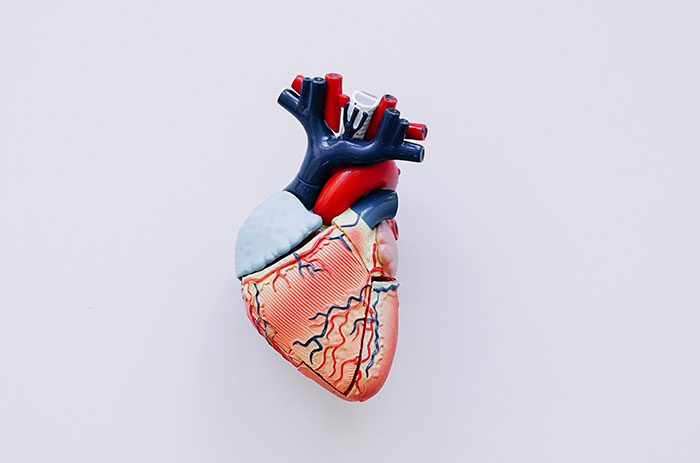
Image source: Ukleon, Freepik (not the actual photo)
I’m not a medical person but my mum was a midwife before she retired. She told me about the septum primum and has always referred to it as the most amazing thing about human development that continues to blow her mind.
In short, it’s a valve in the heart that develops when in the womb. It allows blood to bypass the lungs, which are too immature and the mother’s blood supplies oxygen needs.
What’s remarkable is that when the baby is delivered and draws its first breath, the change in pressure in the circulatory system causes the valve to shut, cutting off the blood flow from the mother and allowing oxygenated blood from the lungs to pass through the heart.
I’m not in medicine so may have explained that a little wrong – perhaps someone can correct me.
#3

Image source: danivus, DC Studio/Freepik (not the actual photo)
The female brain releases chemicals after childbirth that have been shown to dull the memory of the pain.
It’s believed that this is an evolutionary response to increased vaginal sensitivity, and without it women would be unwilling to have more than one child as the pain is so great, resulting in the eventual extinction of the human race.
#4

Image source: ApatheticMoose, EyeEm/Freepik (not the actual photo)
The Elderly can experience memory loss from having constipation. They can’t remember because they can’t poop!
#5

Image source: Byroscope, drobotdean/Freepik (not the actual photo)
It takes about 20% more anesthetics to knock out a Redhead then the normal human.
#6
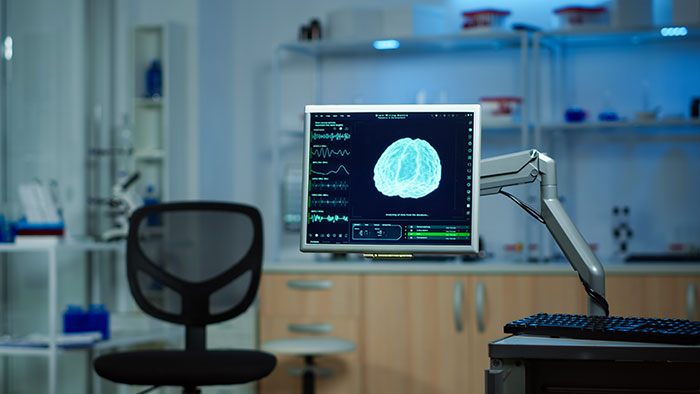
Image source: Obligatory-Reference, DC Studio/Freepik (not the actual photo)
Doctors can scoop out part (even half!) of your brain, and it will simply fill with fluid and the rest of the brain will do its best to compensate.
Source: Have epilepsy, went to seminar on treatment using brain surgery.
#7
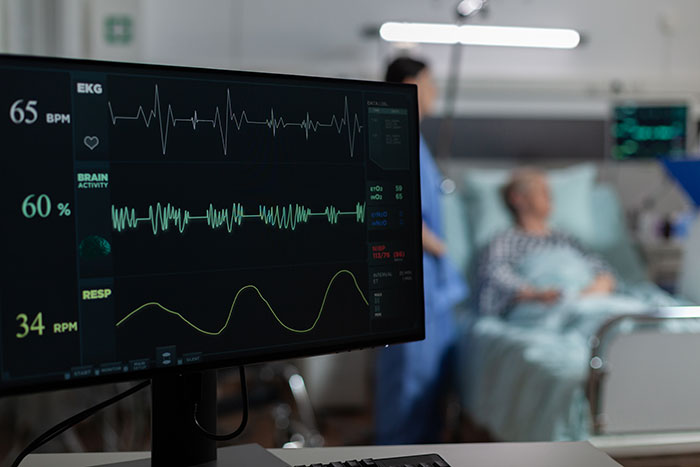
Image source: NuYawker, DC Studio/Freepik (not the actual photo)
Your heart has several back up systems to keep beating on its own. You have a node that operates in a normal heart that keeps its beat. If that fails to fire, another part takes over. If that fails, then another, and another and another. Until the actual heart cells of the ventricles are beating to keep you alive. The hearts pacemaker cells are amazing.
#8

Image source: GreyDeath
I know a couple of fun ones. When we undergo cellular respiration the waste product is CO2. When we lose weight the extra weight is being breathed out. Plants take that CO2 and can turn it into wood.
Sometimes when people suffer facial injuries the nerves can get crossed when they try to repair themselves. This can result in crying whenever somebody smells something delicious instead of salivating.
The human heart pumps the equivalent volume of the entire blood supply in 60-90 seconds.
Many people with severe coronary disease develop a transverse crease (Frank’s sign). This can appear before they even have notable symptoms.
#9
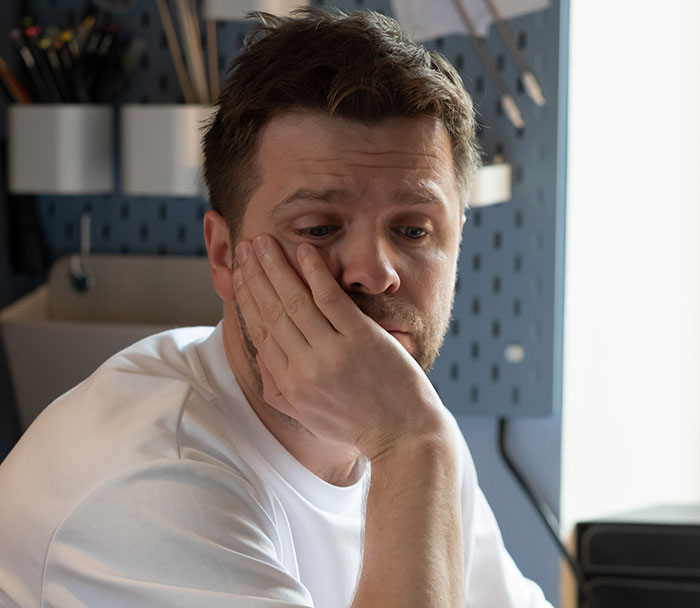
Image source: fluke42, koldunov/Freepik (not the actual photo)
You constantly have cancerous cells in your body all the time. The only time it’s an issue is when your body can’t get rid of the cells.
#10
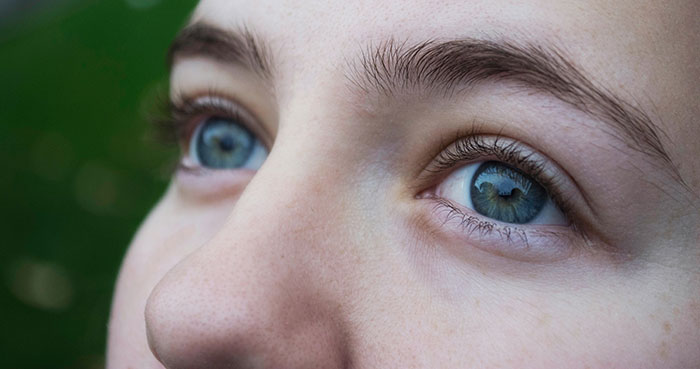
Image source: slingbladerunner, EyeEm/Freepik (not the actual photo)
You can’t move your eyes smoothly UNLESS you are tracking an object. If you scan a room your eyes actually move in a jerking motion. But scan the room focusing on a moving finger and your eyes move perfectly smoothly.
#11

Image source: anon, vovatol/Freepik (not the actual photo)
After you eat a large meal, the acid produced in your stomach in effect makes your blood slightly basic. This makes your oxygen bond harder to your red blood cells so less oxygen gets released into your tissues. The effect- tiredness after you eat.
Edit: I should add, now that I’m going back to this, that your blood is always slightly basic at a pH of 7.4. What I meant was that after you eat, your blood becomes more basic than 7.4 after the alkaline tide that eating causes.
#12

Image source: kibbutzforhotties, prostock-studio/Freepik (not the actual photo)
The coolest thing in medschool I learnt was about Eagle Syndrome.
So you have these two pointy, bony spikes behind your jaw called your styloid processes.They are there as an anchor point for many ligaments including some from your tongue.
In some people the styloid processes are too long and it begins to compress on your carotid arteries leading up from your neck to your head. In most people this just results in neck pain and headaches, but in a minority these little stiletto knives can end up stabbing you in your carotids when turning your head, leading to you bleeding out and eventually dying.
I always seem to recall this fact when I have to answer a phone and pin it against my shoulder when I’m working. Spooky.
#13

Image source: sum_ergo_sum, user15285612/Freepik (not the actual photo)
If you split the corpus callosum, the white matter tracts connecting the brain’s left and right hemispheres, the left hand (controlled by the right brain) will develop Alien Hand Syndrome where it works with a mind of its own and does things your conscious mind doesn’t want. Also Split-Brain patients will be able to name words they see with their right eye, but only draw words that they see with their left eye! All because the linguistically focused left hemisphere can co longer communicate with the nonverbal right hemisphere. The brain is the s**t yo.
#14

Image source: eugene447, photogenia/Freepik (not the actual photo)
The pterion, commonly called “God’s little joke”: about halfway between your eye and the top of your year is the thinnest and weakest part of the skull. It’s the place where several skull bones meet. Right behind it (interior), there’s a super important artery. If it fractures and the artery is perforated, the person can die pretty fast. That’s why whenever someone receives a blow to this section, they need immediate attention.
#15

Image source: MyRespectableAccount, Freepik (not the actual photo)
This one surprised me but may be obvious to some:
There are thin tubes that connect the corner of your eye to your nose. This drains tears into your nose. If you cry, the amount of fluid going into your nose increases, which is why your nose runs when you cry.
#16

Image source: anon, Freepik (not the actual photo)
The development of your visual pathway in your brain requires stimulation from your vision.
Thus, if one of your eyes doesn’t get stimulated, the brain will eventually ignore the signal from that eye you will be blind, even though the eye can appear perfectly normal. This is reversible up until the age of around 5, and eventually becomes permanent if not treated.
This is called ambylopia and can occur from being cross eyed at birth, being born with a cataract, not being able to see up close with one eye, and many other reasons.
#17

Image source: destin325, EyeEm/Freepik (Not the actual photo)
Your body uses weight, nerves, and eyes to determine your spatial orientation. If you suddenly cannot see, typically you’re fine because your brain can sense that you’ve got two feet on the ground, thus it can use the weight on two feet to determine the best way to keep you upright. (and why you become disoriented in a tunnel with spinning lights)
If; however, you lift one leg with your eyes closed, then your body needs to find out a way to know where you’re at. So…you’ll start feeling the nerves in the ankle that is touching the ground begin to fire in a sort of pattern around your ankle. your body is using a patterned out of balance means to determine where balance is.
also, nothing is real time. there are fractions of a second between when you touch something and when your brain says you’ve touched it. therefore, even as you type, your fingers are actually touching the keys before your brain is registering it. you’re brain is typing in the past but anticipating for the future. Also, doing things that require minutely fine timing (like releasing a baseball) become even more complex because your hand must release the ball at a very precise time to get it to its target. Your brain has to anticipate this tiny amount of lag because you’re fingers don’t react the instant the brain says let go.
#18
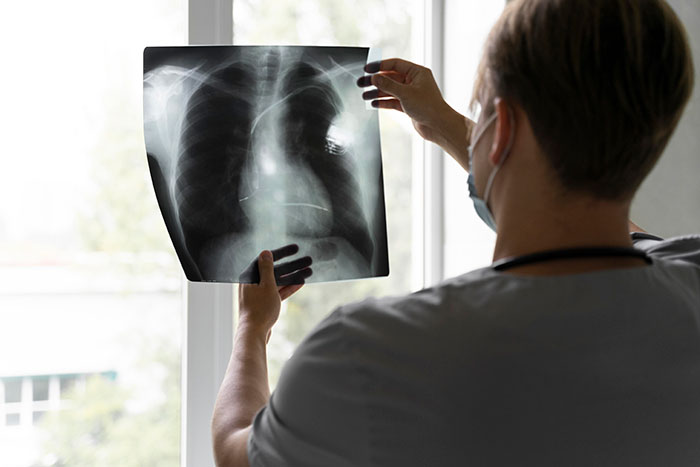
Image source: mctucky, Freepik (not the actual photo)
The alveoli inside our lungs (little tiny balls inside our lungs,needed for oxygen to enter the blood stream) in total has the total surface area of a tennis court!
#19

Image source: moonshinejester, ArthurHidden/Freepik (not the actual photo)
Oh god there’s so many.
Proprioception: your brain knows where all your various body parts are without you being able to see them. Close your eyes and pinch your eyelash, and you’ll see just how precise it is – your brain knows exactly where your hand is, and while you might have to try to find your eyelash, you will almost never actually touch your eyelid, despite not being able to see where your hand is.
Hearing and timing: Your brain picks up on exact locations of sounds based on the time it takes to reach one ear before the other, and the volume difference between the two. Throw something behind you, close your eyes, listen for the sound, and turn towards it without opening your eyes. Then check how close your were to looking directly at the location of the object. Usually, you will be extremely accurate, although practice can improve the accuracy.
Your eyes: You were born with blue eyes, and exposure to ultraviolet radiation from the sun turned them to whatever colour they are now (or didn’t, depending on your genetics: blue-eyed people are technically part-albino mutants, with a certain protein “turned off” in their eyes, which stops melanin production, and forces your eyes to stay albino-blue). They use up about 90% of the average person’s daily sensory input, and the muscles in them flex and relax so constantly that it would be the leg muscle equivalent of walking about 50 miles a day.
The most interesting, I think, however, is your skin. The interesting part doesn’t come from the skin itself, though, it’s how dangerous life would be without it. You see, your skin is made of several layers, the top few layers (epidermis) giving it the colour that it needs for optimal survival. The basal layer of the epidermis is technically the only “living” layer (receiving oxygen), producing cells that are basically just nuclei and sacs of melanin, the size and distribution of which give your skin colour. These cells rapidly decompose until the only thing left is a sac of melanin. Here’s the cool part, though: your skin is always, always, ALWAYS adjusting the amount and distribution of melanin. Were it not doing that, you would begin to suffer from UV radiation poisoning almost immediately (resulting in widespread burns across the body and general nausea, dizziness, and the other symptoms associated with sun poisoning). Yet, if we had too MUCH melanin, we would not get enough sunlight (Vitamin D) and would become very sick as well. Therefore, the closer you are to the equator, or the more you are out in sunlight, the more melanin you have. But as you travel away from the equator or stay inside, your body needs to gather as much sunlight as possible to keep up vitamin D levels, so it reduces the melanin in your skin.
Sorry for the wall of text.
#20

Image source: anon, bristekjegor/Freepik (not the actual photo)
Our system of producing energy involves using oxygen in our cells to essentially break down the glucose we eat into water, carbon dioxide, and ATP (this is why we inhale oxygen in and exhale carbon dioxide out). The ATP is essentially the final result, which is the body’s energy currency.
Babies, however, have a certain type of fat called brown fat. In this fat, this process is purposefully not efficient, and a lot of energy produced is given off as heat instead of making ATP.
This is super important, because babies have a large surface area : body ratio, so they give off a lot of heat to the environment. Brown fat helps balance this problem and keeps them warm.
#21

Image source: randygiesinger, stefamerpik/Freepik (not the actual photo)
Pain gating is a super neat concept. Its amazing how your body prioritizes what pain is more urgent to notice.
#22

Image source: Wassern, mari_draiser/Freepik (not the actual photo)
Fun Fact: the Hyoid bone is the ONLY bone that isn’t connected to ANY other bone.
#23
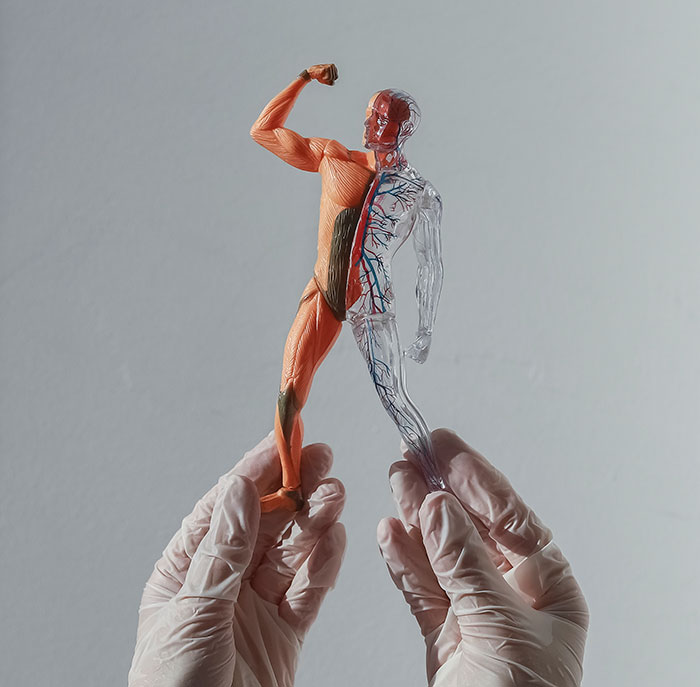
Image source: DrThrowawayBSc, val-suprunovich/Freepik (not the actual photo)
I think something a lot of people don’t realise is simply the amount of variation in anatomy between us all. There are lots of examples; for instance, how many of you have the palmaris longus muscle?
#24

Image source: hairheads3, atlascompany/Freepik (not the actual photo)
The cremasteric reflex.
(wiki link)
The first time I heard about this reflex in med school I immediately thought: I must test this out on a male friend. So I did and much to my delight the reflex does work (tested it many times). The next day in class the professor said: “be honest how many of you went and tested the cremasteric reflex after class yesterday”. Turns out pretty much every one had.
#25

Image source: myveryownpipboy, freestockcenter/Freepik (not the actual photo)
Similar to the tissue found in the p***s, there is erectile tissue in your nose whose vascularity changes every 30 minutes or so to prevent insensible water loss. That’s why you may often feel that one side of your nose always seems to be stuffed.


















Got wisdom to pour?